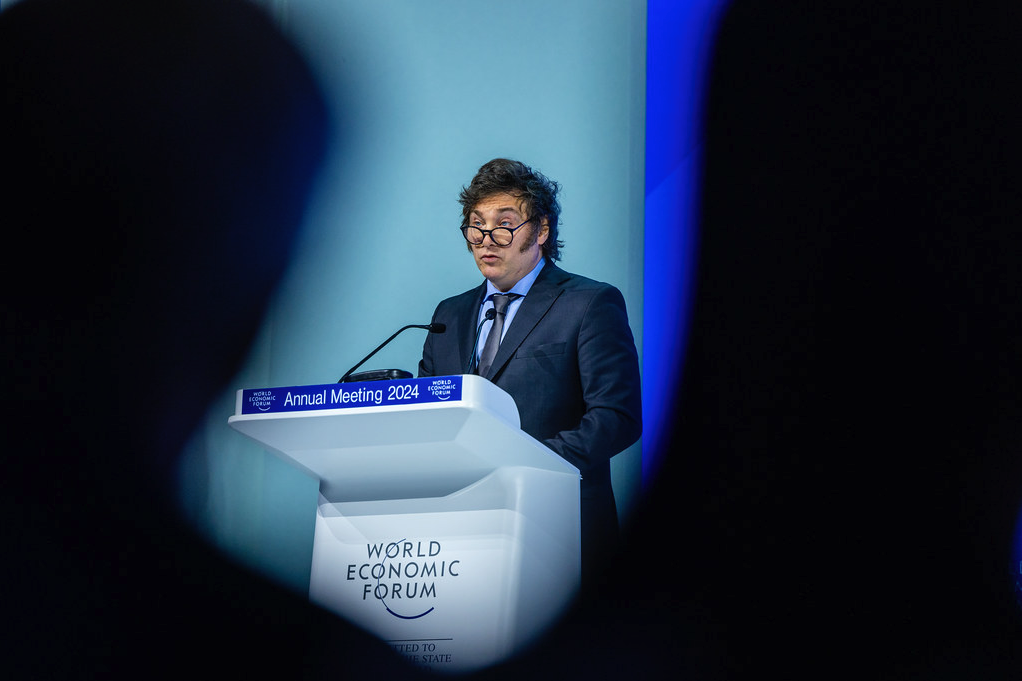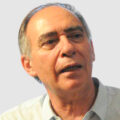Today, the status quo regime established in 1983, which opened the doors to the illusion of democracy after the fall of the most atrocious military dictatorship, is in its death throes. The 1983 regime (I use this term in its broadest sense) went through two emergency fronts in 1989 and 2001, in an extended period of progressive disillusionment.
Democratic legitimacy consented to political alternation, with its moments of dreams and despair, in a country that finally gave way to poverty, galloping inflation, economic stagnation, institutional degradation, fiscal unitarism, distrust in politics, and widespread corruption.
After forty years, the contrast between the hopes of yesterday and the disappointment of the present, explains to a large extent the rise of a “government of opinion” (close to 56% of the votes) that supports President Javier Milei. It is an opportune moment to re-examine the relationship between power and public opinion.
This electoral triumph is the sign of the agony of an epoch, of the trance of a type of regime, which will be the starting point of another so far unknown, as it is not yet clear who can embody it. It is not just a simple swing of the political pendulum, it is the opening of a gap between the economy, politics, and society.
Competitive elections, with a strong operative meaning, produced a transcendent change of political sign, as a possibility of renewal of the ruling elites of the status quo. It also happens that elections have a symbolic character, and in this sense do not represent a mere act of appointing rulers. Symbols are part of the universe of meanings, and therefore have a functional value.
If Milei has won, it is not because the adversaries deserted the fight, but because, imbued with the nature of that regime, they failed to understand with precision and certainty the demands of a vast majority both on the grassroots and on the surface.
A gradual, perhaps silent, transformation has taken place in the political culture of Argentines, as a way of opposing the failure of a status quo regime, understood in its literal sense: the current state in which things are presented to us. Certainly, it is not an amalgamated public action program, but a striking sort of “consensus regime”, although it observes the world from dissimilar perspectives. That is why, within it, eternal rivalries, underlined differences, and very sharp twists and turns prevail.
Political styles have not been the same in the decades before 1983, nor have they been the same since then. The Peronist party played with the politics of extremes almost as a point of fracture: Ezeiza, during Perón’s return, the montonera violence, the three A’s. The polarization, the factionalism, the political confrontation between the two parties, and the political crisis of the “A’s”. Polarization, factionalism have been a constant between the oppositions and the officialism. The status quo does not symbolize a homogeneous or indestructible regime. Nor have all the governments in office been the same, in their actions, responsibilities, transparency, and management efficiency. There is no single judgment on these years, on the combination of the period.
However, there is a common base that encompasses them: “it is the current state of things”. That status quo regime did not include nor did it strictly set out to put an end to a corporate society. Jorge Bustamante’s 1988 book, The Corporate Republic, retains a remarkable topicality.
Milei is the president who questions the status quo regime. In that sharp struggle, with his eccentric personality, he opens a scenario of conflict in terms of intensity and extension that can be defined, lacking a better one, as a “regime of antagonism”, as a regime of enmity. A policy that highlights extremes. I do not know what the new order will be, but there are two rival regimes: the one that does not end up dying and the one that cannot dawn. Between the two there is a bridge which is the transition process between one regime and the other. In this transition, the crisis of confidence between traditional politics as it is practiced and the yearning, wounded, complaining social body is reinforced. Thus, endogenous causes are visualized, some more determinant than others.
Perhaps, the central question is how to reestablish the proportions between what must remain and the changes to be made. Milei is the bearer of a utopian project (beyond adjustment and zero deficit), unrealizable, anarcho-capitalist, without the state, animated by a social system exclusively self-regulated by the markets.
Basically, a new society that places itself outside of space and time, although now, in a fast learning process, embedded in the management of government, it makes use of political pragmatism. If it continues along this path, in order to be able to govern, it must improve its representation in Congress, through the strengthening of alliances and good results in the midterm elections. Anarcho-capitalism would be adulterated. With the approval of the Ley Bases and the delegation of extraordinary powers, new questions about the future of his administration are opened.
The desires for change of the Argentine society do not seem to fit in the program and in Milei’s worldview, in the medium term we will be able to find an answer. It is time to review certainties and put many old convictions in parentheses. The representations of those in power give rise to despair and perspectives have been inverted. Democracy is the only regime that treats people as free beings.












